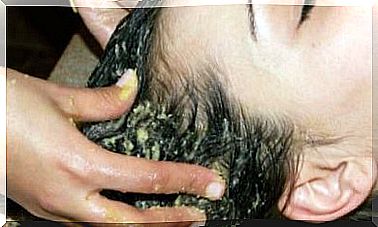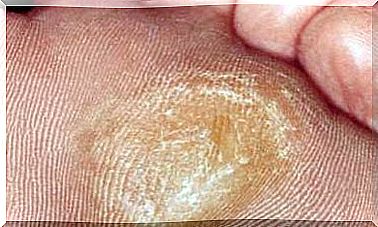The Effects Of Mercury In Fish
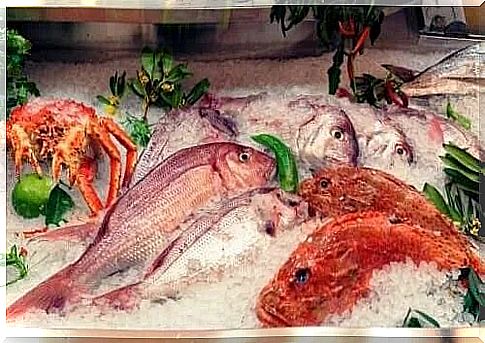
Nutritionists always tell us that fish is an important source of essential nutrients. However, there are some species of fish that may contain heavy metals, such as mercury. Do you know the effects of mercury in certain types of fish?
The World Health Organization (WHO) points out that the main source of human exposure to toxic compounds is the consumption of fish and seafood. These substances drastically affect our health and, above all, pose a significant risk to pregnant women and nursing mothers.
Why avoid some types of fish?
It has been known for many years that a wide variety of marine species, especially those at the bottom of the food chain, can accumulate metals such as cadmium, lead and mercury from the mining, livestock and agricultural industries, among others. The effects of mercury in fish can be harmful to the human body.
Concentrations of heavy metals are so high that they can be lethal. In fact, the mass poisoning that took place in Minamata Bay, Japan, in the early 1950s is the best known case of poisoning due to the consumption of fish with high levels of mercury.
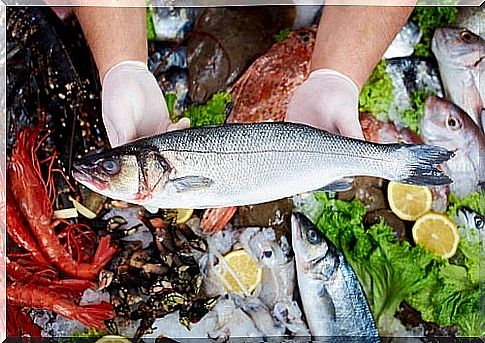
The effects of mercury in fish on human health
According to a study published in the Medical Journal of Chile, the toxicity and effects of mercury in fish are associated with the chemical form, type, dose of exposure and age at which the contamination occurs. When this metal is released into the environment, it undergoes a series of transformations and participates in cycles between the atmosphere, ocean and land.
5% of the amount that reaches the water (including lakes, lagoons, swamps, estuaries and oceans) is elemental mercury and accumulates as sediment. The bacteria that live there turn it into methylmercury, which worms and other animals assimilate.
This is the organic substance that fish ingest and is the one with the highest toxicity to living organisms, as it causes problems in the following systems and organs:
Types of fish that you should not eat regularly
There are species of fish that can live more than 100 years. The assimilation of these substances throughout life increases their potential for toxicity.
There are also large predatory fish that end up consuming huge amounts of heavy metals. Read on to find out what types of fish you should avoid!
The mackerel is an elongated, spindle-shaped marine fish. He has a sharp head and a wide mouth. He also has large eyes, which are surrounded by a closed bone ring. Small scales cover his whole body and he has a bright blue-green back, with green fins and a silver belly.
It usually measures 65 centimeters. But males can reach a length of up to 2 meters. This species lives in the Atlantic Ocean, from Canada and Massachusetts (United States) to Sao Paulo (Brazil).
This is a species of marlin that can measure up to 4 meters. It usually measures between 1.80 and 3 meters. It is also known by other names, such as the Atlantic blue marlin, due to the color it has on the back. In the belly area, it is silver.
It has an elongated body and two dorsal fins. His jaw is shaped like a sword. This fish lives in the subtropical and tropical waters of the Atlantic, including the coasts of the Canary Islands.
It is also found in the Pacific and Indian Oceans. Females weigh up to 450 kilograms, while males do not exceed 160 kilograms.
Red perch (Hoplostethus atlanticus)
This sea fish lives in the east and northwest of the Atlantic Ocean, south of the Pacific Ocean and the Indian Ocean. Its body is oval and compressed. He has a big head and small eyes and teeth. Fishermen recognize this species due to its dark orange body and red head.
The red perch lives at depths of 180 to 1500 meters, and fishermen accidentally catch it with mixed bottom trawls. The red perch is the longest-lived fish known. It is estimated that it can live up to 180 years.
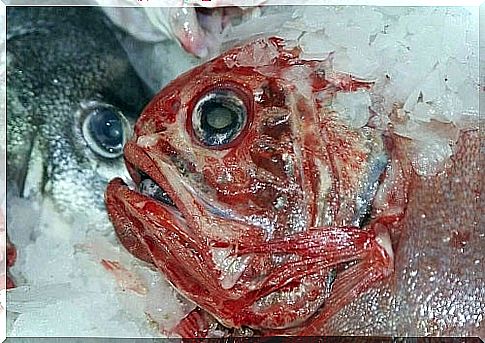
The common code, also known as the “Atlantic code” or “Norwegian code”, is one of 60 species of migratory fish. It lives in the Northeast Atlantic Ocean, from the Barents Sea to the Bay of Biscay, including the waters of Iceland, Greenland and the Baltic Sea.
It is a small fish, although some specimens reach a length of 2 meters and weigh up to 100 kilograms. It feeds on other fish, such as herring or sardines. This species lives at a depth of 600 meters.
Large-eyed tuna or obese Atlantic tuna (Thunnus obesus)
The big-eyed tuna is one of the species that can store considerable amounts of heavy metals. But this is not the case with the Mediterranean tone.
The obese tuna lives in the tropical and subtropical areas of the Atlantic, Indian and Pacific Oceans, but not in the Mediterranean Sea. It reaches a maximum length of 2.50 meters. It usually reaches 1.80 meters at an approximate age of 15 years.
The effects of mercury in fish: conclusion
These are the main species of fish that can accumulate excess heavy metals, especially methylmercury. We must mention that there are other fish that contain heavy metals, but we have listed the species that often have dangerous levels of mercury.
Also, women of childbearing age, pregnant women, breastfeeding women and children under 2 years of age are more vulnerable to these toxic substances due to the negative health effects of mercury. Of course, this does not mean that other population groups are not affected.
Eating moderate amounts of fish will not hurt you. So, you can occasionally eat these types of fish, but do not overdo it. You can enjoy the benefits of fish without risking your health!





